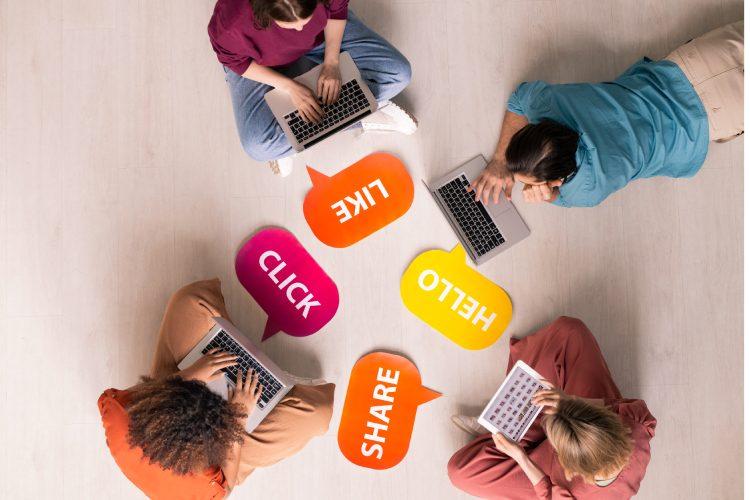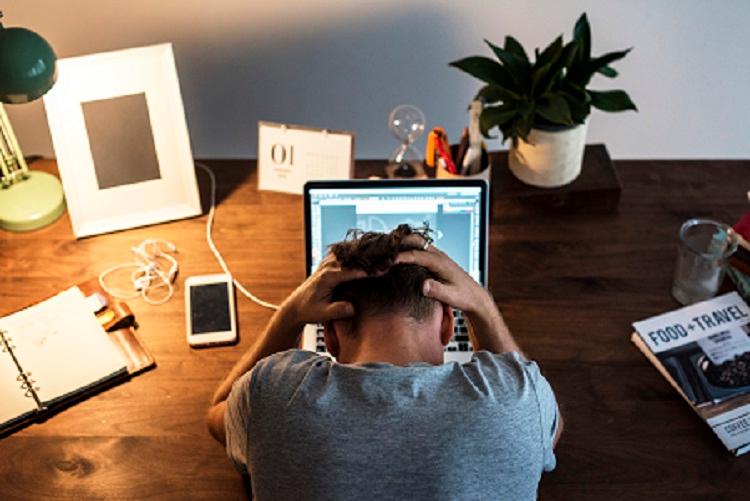What Is Social Media?

Various Social Media Platforms
- Snapchat
- TikTok
- YouTube
- WhatsApp, etc.
Many of these platforms come in different forms, such as social networking sites, photo and video sharing, instant messages, blogs, wikis, podcasts, widgets, virtual worlds and more.
While the youth are using many of these, the question that arises is how is it actually affecting them?
While social media is common for our youth, it greatly influences teen depression and behavior.
Increasing Self-Harm
Massive Change
Unfortunately, the implication is that children are more anxious, more fragile, more depressed and less comfortable in taking risks, going on dates, having romantic conversations and more. This is a massive change for an entire generation.
The important thing to consider is that it’s not their fault. Companies pay millions of dollars for apps designed with fonts and colors associated with positive emotions when someone simply opens the application.
Average Daily Screen Time
Negative Impact on Mental Health
The first is a lack of learning and research capabilities. Today’s students are dependent on social media for current events. They also don’t do “research” as everything is a click away on social media sites. Moreover, this information is also not always accurate. Students also spend so much time on social media that they often neglect other responsibilities like schoolwork.

Digital Stressors
- Seeing people posting about events they weren’t invited to (FOMO).
- Feeling pressure to post positive and engaging content.
- Feeling pressure to get comments and likes on their posts.
- Someone posts things about them that they cannot change or control.
Positive Effects of Social Media
- Education
- Socializing
- Sharing Knowledge
- Being “In The Know”
- Learning
Social networking can provide benefits to students, teachers, and even parents. It is easy to get education from experts and professionals through social media. One can follow anyone and learn from them to enhance their knowledge in any field. Irrespective of our location and educational background, we can take knowledge from anywhere or everywhere.
Socializing through the internet is an effortless way for kids to make friends, exchange ideas, and learn new things. This will invariably result in them becoming more confident overall.
The use of social media provides an easy and effective way for children to share knowledge. Students can simply access and share information. Moreover, this makes the entire process of learning very smooth.
Social media allows kids to learn new things when it happens. This will enable them to “know” about the information.
There are a lot of ways to learn online: tons of online platforms are dedicated to teaching kids about academics.
Ways To Combat Negative Effects of Social Media
Here are five ways to combat the adverse effects of social media on youth:
- Check in with your child about the music, movies, TV shows and celebrities they like. Once we know children’s interests, we can easily spot what’s influencing them.
- Enforce realistic rules about using technology at home or school. Establish limits and regulations regarding which sites are appropriate/ how much time can be spent daily on social media.
- Be more transparent with your child. Have honest conversations with them about the potential challenges of social media. Don’t be afraid to talk about communication, self-esteem, and life choices surrounding the internet.
- Encourage youth/teens to ask questions and discover more about how they interpret media. For example, pick a topic surrounding social media platforms and talk about it, such as their motivation for that specific app and how it makes them feel? What do they think they need from it, etc.
- Ask teens about their internet “role model.” Ask why they like that celebrity/influencer and what values of that celebrity interest them.
Don’t hesitate to reach out to Ammirati Counseling to ask and inquire about support services that you can receive to help with overcoming feelings of depression, loneliness, stress or anxiety.
Ammirati Counseling is a boutique counseling group with office in Bannockburn. Therapists also offer private therapy via remote online. They provide comprehensive care to children, teens, adults, couples, families, and the LGBTQ community.
Terri specializes in empowering clients to strengthen their relationships. She works with all aspects of relational distress and provides solution-focused therapy.
- Gottman Couples Therapy: Key Principles And What You Can Do Now - June 17, 2024
- Healing From Trauma: 3 Ways To Take Control - June 3, 2024
- Signs & Symptoms of Depression In Men - May 20, 2024

